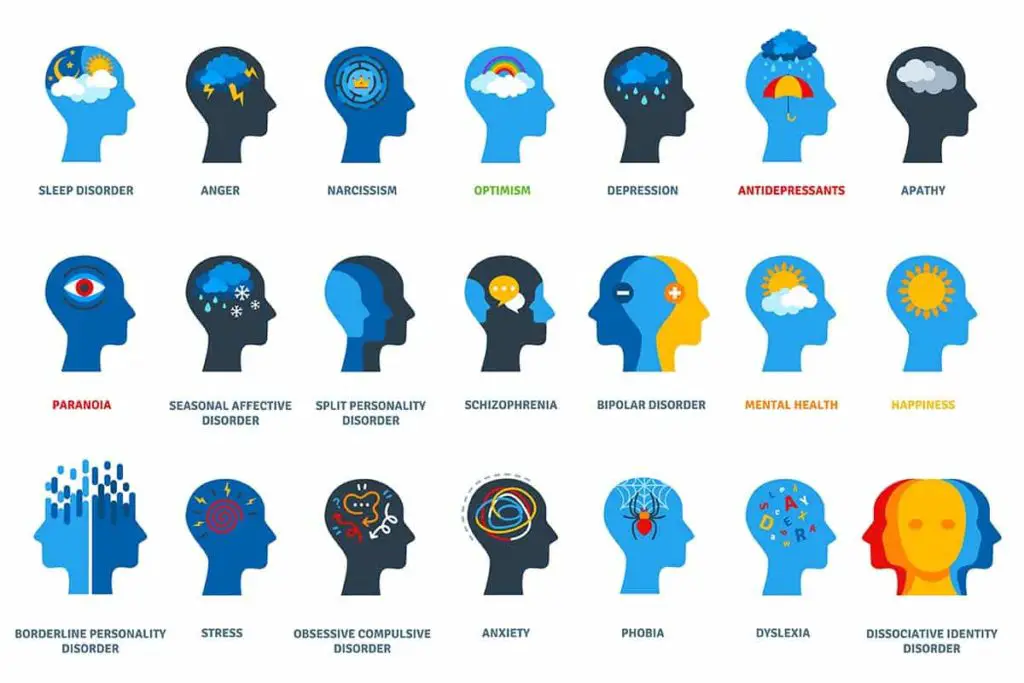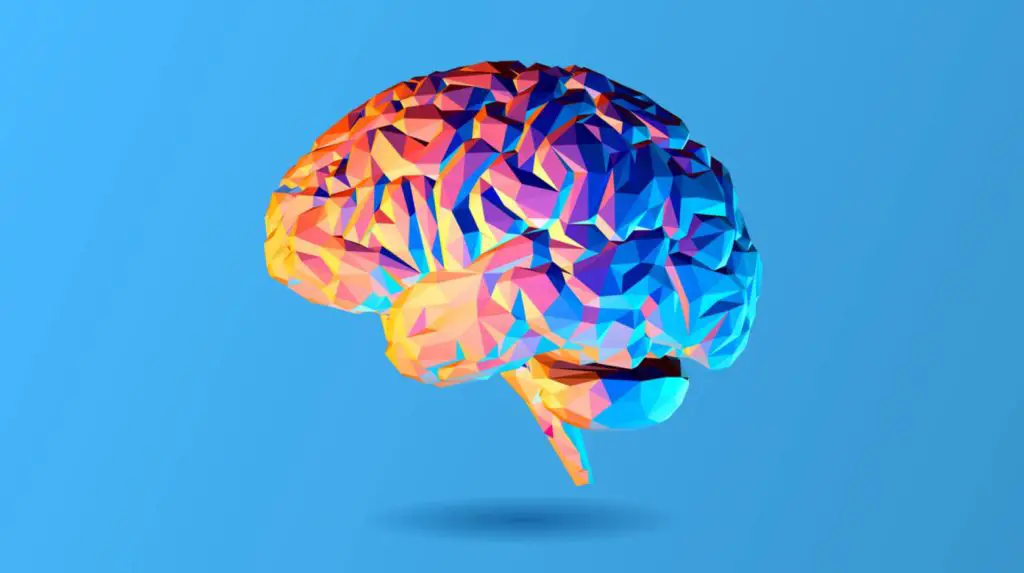Introduction
Worldwide has been greatly impacted by the very widespread and complicated diseases known as mental health disorders considered to be an important information.
In order to give appropriate treatment and support, nursing staff must have a thorough grasp of these illnesses. In order for nursing workers to fully understand mental health illnesses, this article will go into 8 important information.
By learning more about these crucial topics, such as the definition and classification of mental health disorders, their prevalence and effects, common mental health disorders, holistic care methods, nurse self-care techniques, efforts to reduce stigma in the field, and the significance of cultural competence in mental health care, nurses can expand their knowledge and help those who suffer from mental illness live better lives.

Table of Contents
8 Important Information In Understanding Mental Health Disorders
1. Definition and Classifications of Mental Health Disorders
For nurses, it’s important information to comprehend the description and categories of mental health diseases. A wide range of problems that have an impact on a person’s thoughts, feelings, and actions are included in mental health disorders. To effectively diagnose patients and deliver the necessary care, nurses must have a thorough awareness of these illnesses. Effective evaluation and treatment planning are ensured by the categorization system, such as the Diagnostic and Statistical Manual of Mental illnesses (DSM-5), which aids in the identification and differentiation of various mental health illnesses.
2. Impact and Prevalence
It is important information for nurses to understand the prevalence and impact of mental health issues. Mental health issues are widespread and can impact people of all ages and socioeconomic backgrounds. Nurses may better understand the scale of the problem and fight for proper funding, support systems, and destigmatization initiatives by being aware of the facts and prevalence rates. Additionally, nurses may offer holistic treatment that addresses not just the symptoms but also the social, emotional, and psychological well-being of the patients and their support networks by acknowledging the effects of mental health problems on people, families, and communities.
3. Common Mental Health Conditions
Important information for nurses is knowledge of common mental health illnesses. The most common disorders are eating disorders, obsessive-compulsive disorder (OCD), attention-deficit/hyperactivity disorder (ADHD), bipolar disorder, schizophrenia, post-traumatic stress disorder (PTSD), and depression. Nurses are better able to assist and care for patients with these illnesses because they are familiar with the symptoms, etiology, risk factors, and evidence-based treatment methods.
4. Holistic care Strategies
When treating mental health illnesses, it is important information for nurses to use holistic care methods. Beyond treating physical symptoms, mental health treatment also addresses a person’s psychological, social, and spiritual wellbeing. Nurses may offer thorough care that recognizes the interdependence of all parts of a person’s life by taking a holistic approach. This might entail working with multidisciplinary teams, using therapeutic communication, encouraging self-care behaviors, and making it easier to access neighborhood services. Nurses can improve the general wellbeing of people with mental health conditions by concentrating on the complete person.

5. Destigmatization Initiatives
For nurses working in the mental health profession, understanding destigmatization activities is important information. The stigma associated with mental health illnesses can make it difficult to get support and assistance. By raising awareness, dispelling myths, and imparting knowledge, nurses play a significant part in lowering stigma. Nurses may help to create a supportive workplace that promotes open communication, empathy, and acceptance by taking part in destigmatization activities. Individuals suffering from mental health illnesses may therefore feel more empowered to ask for assistance and get the care they need.
6. Recent Advancements in Mental Health Care
It’s important information for nurses to stay current on new developments and trends in mental health treatment. New studies, treatments, and strategies are continually being created in the field of mental health. Innovations like telemedicine and digital therapies, trauma-informed care, cultural competency, and the integration of mental health into primary care settings are all things that nurses should keep up with. Nurses may modify their practice to integrate evidence-based strategies and give patients with mental health illnesses the best treatment possible by keeping up with current changes.
7. Cultural competence in mental health care is important
For nurses to provide effective mental health treatment, they must understand the value of cultural competency. Individuals’ perspectives, experiences, and help-seeking actions in relation to mental health are influenced by cultural variables. To offer culturally sensitive and appropriate care, nurses must comprehend and respect the varied cultural ideas, traditions, and values. Nurses may build trust, encourage good communication, and provide care that is customized to the particular requirements of people from various cultural backgrounds by incorporating cultural competency into their practice.
8. Nurse Self-Care Techniques
When dealing with mental health illnesses, prioritizing self-care is important information for nurses. Providing care for those who are experiencing mental health difficulties can be emotionally taxing and may raise the risk of burnout and compassion fatigue. To deliver quality treatment, nurses must put their own health first. Nurses may preserve their physical and mental health by implementing self-care behaviors include preserving a good work-life balance, looking for support networks, using stress management strategies, and encouraging self-reflection. Nurses may maintain their capacity to deliver kind and superior care by caring for themselves.
Conclusion
In conclusion, nursing personnel who work to deliver effective care and support must have a thorough grasp of mental health conditions. Nurses may improve their understanding and contribute to the wellbeing of people with mental health difficulties by learning and internalizing the eight key facts covered in this article.
Nurses are better equipped to appropriately assess patients and deliver the treatment they need when they have a thorough understanding of the description and classification of mental health illnesses. In order to advocate for services, support networks, and de-stigmatization initiatives that have a positive influence on people, families, and communities, nurses must be aware of the prevalence and effects of these illnesses.
In conclusion, nursing practitioners must have a thorough awareness of mental health diseases. The lives of people with mental health difficulties can be improved by nurses learning the important information included in this article. Nursing professionals can deliver compassionate, evidence-based care that addresses the holistic needs of individuals, promotes their general well-being, and helps create a more inclusive and supportive society by engaging in ongoing education, self-reflection, and staying informed about new trends and cultural competence.
Bible Verse
Philippians 4:6-7 Be anxious for nothing, but in everything by prayer and supplication with thanksgiving let your requests be made known to God. And the peace of God, which surpasses all comprehension, will guard your hearts and your minds in Christ Jesus.
Nothing beats a prayer. For, It is a powerful weapon of a christian. In prayer you will be receiving supernatural blessings and power from the God in Heaven. So whatever it is lurking in your mind, pray to God!
Internal Links
- Beyond the Screen of Information Technology: 4 Remarkable Advantages of Embracing the Analog Lifestyle
- Exploring 8 Heart Therapy Methods for Cardiovascular Disease
- 10 Effective Strategies for Severe Asthma Treatment to Empower Your Breath
- 7 Therapy Processes: Effective Management for Schizophrenia
- 8 Important Information: Nurse Roles in Refining Client Care
- 5 Superb Phases on Acts” How to Pray to our Sovereign God and 3 Attributes of Prayer Therapy for Mental Health.
- Self-care to Have a Good Day: 5 Best Relaxation Exercises



